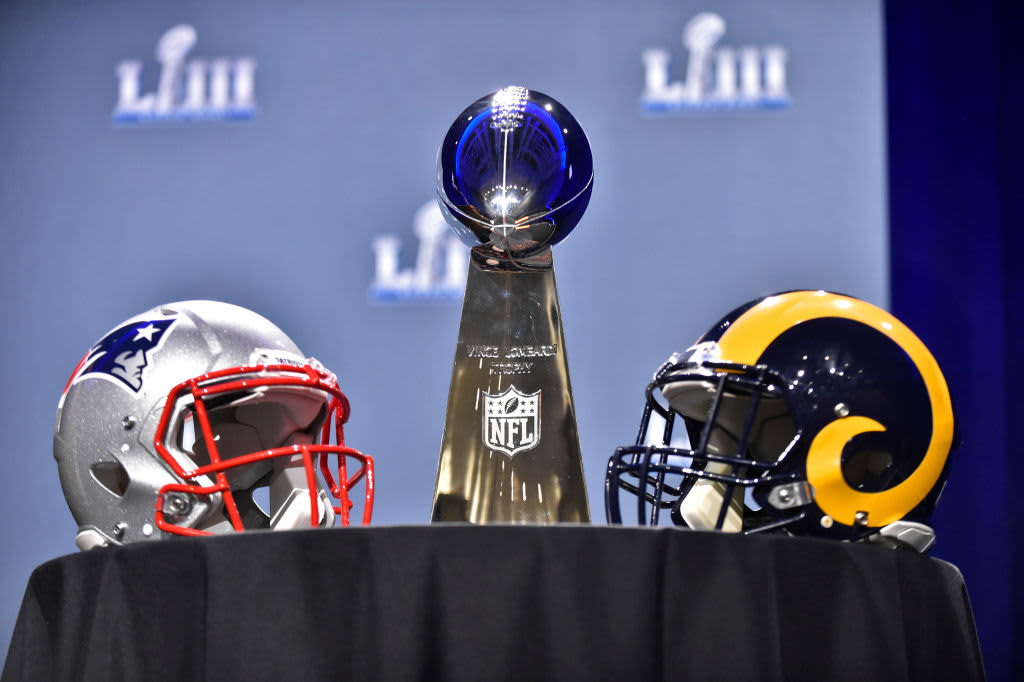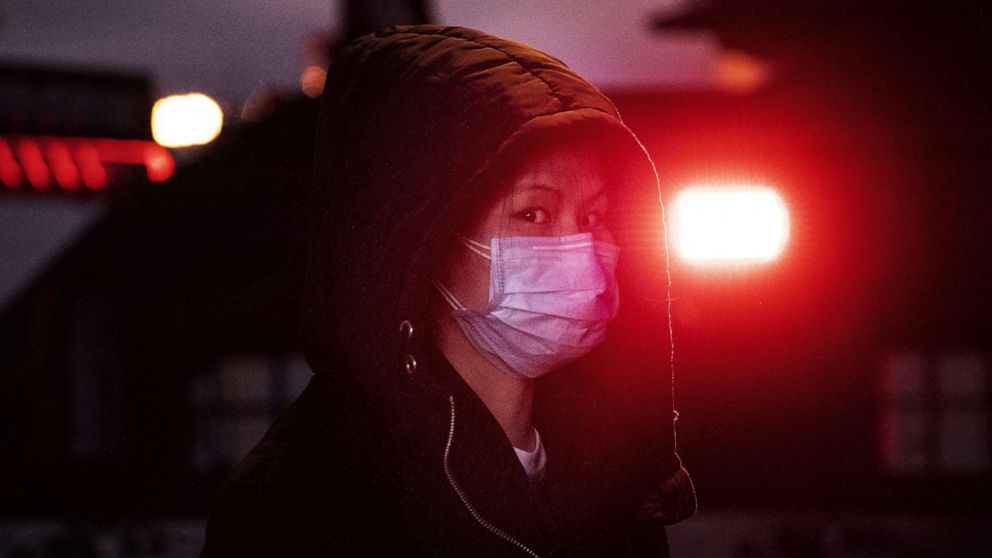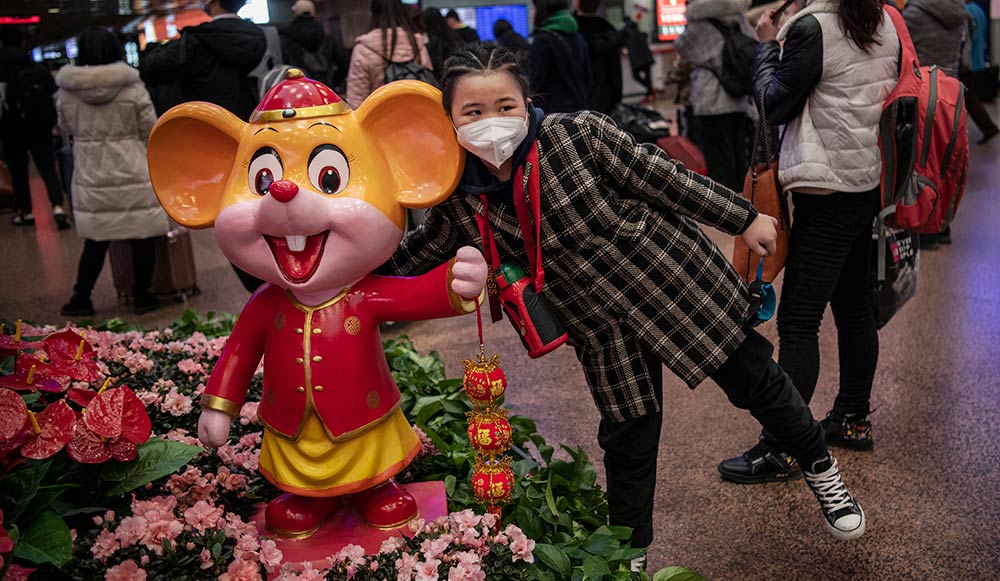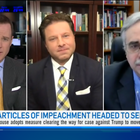Experts Matter. Find Yours.
Connect for media, speaking, professional opportunities & more.

This Sunday, close to 100 million people will be tuning in to watch the Kansas City Chiefs take on the San Francisco 49ers in the biggest game of the year. The Super Bowl is the biggest, loudest and most expensive sporting event in America. But before the players take the field and kick-off at 6:30 PM on game day - there’s a week worth of events and parties to host and control, tens of thousands of fans, celebrities and curious on-lookers to contend with and ensuring the week is entertaining, enjoyable and ultimately safe is also the top priority. And all of it takes months of planning in advance. And most importantly, handling all of these logistics, in the background and relatively unseen might be the biggest play of the week. If you are a journalist covering the Superbowl this week – then let our experts help. Jim Riordan initiated the MBA Sport Management program at Florida Atlantic University in 2000. Jim is an expert in the areas of event operations, crowd management and sports administration. He has also worked several major sporting events including Super Bowl XXXII and XXXIV. Jim can help with your stories, share his experience and lend his expert perspective on what it takes to pull off an event of this size - to arrange an interview, simply click on his icon to book a time.

Curious about who’s cashing in on Superbowl Sunday? Let our experts help!
The big day is almost here! Fans around the world are getting squares ready, chili cooked, and prop-bets placed. Superbowl Sunday is America’s biggest day for television and sports. This year, it will be all eyes on the Kansas City Chiefs and San Francisco 49ers as they land in Miami to prep and promote for Sunday’s kickoff. There’s big money to be made this week, and a lot of it is going around, according to CNBC – last year was a windfall and most expect this year to be even bigger. Super Bowl ad spots are the most expensive on commercial TV in the U.S. by far, with a 30-second slot costing $5.25 million. That works out at roughly $175,000 per second. Last year, the winners of the Super Bowl made an estimated $112,000 each, while their opponents made $56,000 each. Referees, meanwhile, make between $4,000 and $10,000 a game, according to an estimate by CBS, and their annual salary is about $201,000. Stores are set to make $14.8 billion in sales around the game, with most of that money spent on food and drink to consume while watching, according to a survey carried out by Prosper Insights & Analytics for the National Retail Federation last week. That equates to $81.30 per person, up from last year’s $81.17. Are you a journalist covering this Sunday’s big game? If you have questions about the marketing or economics of the Superbowl, the let our experts help with your stories and coverage. Professor Andrew Wonders joined the faculty of the School of Business Administration at Cedarville University in 2013 following a 13-year career in the sport industry. He is an expert in the areas of major sporting events and the business of sports. If you are looking to arrange an interview with Professor Wonders – simply click on his icon to arrange a time.

Containing the coronavirus – Can it be done?
As of January 21, America had its first confirmed case of coronavirus. The virus that presents with flu like symptoms and is slowly making its way around Asia has finally found a host on American soil. The news of this has health officials scurrying and the world on edge with concerns of another SARS-like epidemic on the way. "As it stands, nearly 440 cases of the new coronavirus have been reported in China, Thailand, Japan, South Korea, Taiwan and the United States, with the overwhelming majority in China. All cases reported internationally were exported from Wuhan. Nine deaths have been reported in Wuhan. What should I know about the cornonavirus case in the U.S.? The first case of coronavirus reported in the U.S. is in a patient in his 30s from Washington state, the CDC said Tuesday. Laboratory testing at the CDC in Atlanta confirmed the patient was infected with it. He's currently hospitalized, in good condition, health officials in Washington said. Although the patient had traveled to Wuhan, he said did not visit the market at the center of the outbreak." January 21 - ABC News As this story develops, there remains a lot of questions to be asked getting the right information and facts will be essential given this is a matter of public health and concern. How is the virus transmitted? Can we expect more cases to appear on U.S. soil? Is there a vaccine and are there any preventable actions people can take? And, can health authorities stop the spread of Coronavirus before it becomes an epidemic? If you are a journalist covering this topic – that’s where our experts can help. Dr. Jose Vazquez is an expert in the realm of infectious diseases. He studies and treats infectious diseases, including antibiotic-resistant superbugs and fungal infections. A leader in his field and a go-to expert for media regarding this topic, Dr. Vasquez is available to speak with media regarding Immunization Awareness Month. Click on his icon to arrange an interview.

Winning a Grammy Can "Catapult" Your Career
At the 62nd Annual Grammy Awards, Billie Eilish became the first woman to take home the big four awards: Album of the Year, Record of the Year, Song of the Year and Best New Artist. Villanova's David Fiorenza, an assistant professor of economics, says that winning a high-profile award, like a Grammy, has the potential to catapult your career for decades, particularly for a lesser-known artist like Eilish. However, he notes that it's important to be wary of changes to the music industry. "Musical trends change. Creative destruction of the music industry has occurred for decades. Radio station mergers and business cycles have all contributed to dozens of artists careers fizzling a year or so after the Grammys," Fiorenza says. "One way to keep your career going economically: touring the U.S. and looking for markets in Europe, Japan and South America."

By early afternoon Friday, the Centers for Disease Control and Prevention had confirmed a second case of the new coronavirus on American soil. With cases now being detected in Europe and across Asia, the world is watching and worrying about the potential spread of this dangerous virus. There are 63 cases being monitored in the U.S. that stretch across 22 states, including the first patient in Washington state and the new case in Illinois, said Dr. Nancy Messonnier, director of the National Center for Immunization and Respiratory Diseases. Officials said the new patient, a woman in her 60s, is doing well and is in stable condition. She remains isolated in a hospital as a precaution, U.S. health officials said on a conference call with reporters. The Illinois patient traveled to China in late December and began experiencing symptoms when she returned to the U.S. last week, officials said. She did not have symptoms while flying, they said. “She was not symptomatic when flying. And based on what we know now about this virus, our concern for transmission before symptoms develop is low, so that is reassuring,” Dr. Allison Arwady, Chicago’s public health commissioner, said on the call. January 24 – CNBC As this story progresses – there are a lot of questions journalists are asking. How is this virus spread? How worried do Americans need to be about the coronavirus? Are there warning signs or methods to prevent the spread? And how far away are we from a vaccination? If you are a journalist covering this developing issue – let our experts help. Dr. Jian Zhang has worked with the Chinese Centers for Disease Control and Prevention, and the World Health Organization prior to moving to the United States. He obtained a Doctorate in Public Health from the Arnold School of Public Health, University of South Carolina before he joined the faculty of Jiann-Ping Hsu College of Public Health at Georgia Southern University. He is available to speak with journalists regarding the coronavirus and its origins and its potential to spread across America – simply click on his icon to arrange an interview.

Hacking billionaires and the link between Bezos, Iran and what’s next for America
It’s becoming the ultimate he said/she said between the ultra-rich and world elite. Amazon CEO Jeff Bezos is claiming Saudi Crown Prince Mohammed bin Salman hacked his phone via WhatsApp. The motive seems routed to the murdering of the Washington Post’s journalist Jamal Khashoggi. However, as the billionaires debate and deflect what actually happened, the event should be a warning sign of what could be on the horizon. America is still on guard and expecting retaliation in one form or another from the assassination of General Qasem Soleimani, and online attacks and targeting cellphones could be the preferred method from America’s enemies abroad. “We should expect attacks from Iranian hackers or those sympathetic to their cause who appear to be civilians without nation state sponsorship will hit low level targets on the basis of ideological/national pride,” says Michigan State University’s Thomas J. Holt. “There will likely be nation-state sponsored attacks though it is unclear how quickly they will launch or how effective they may be.” This is an area that is familiar with American military and intelligence circles, Holt further explains. “Historically the U.S. has been involved in cyber-attacks that are able to severely affect Iranian capabilities, such as Stuxnet. Their counterattacks have been less public and seemingly less effective. However, they’ve already begun as with that web defacement against a US government website reported last week that appears to have Iranian ties or origination.” And as America waits and watches... What are the obvious and perhaps not so obvious approaches to breaching American cyber-security that we can expect? Will it be app based? Will the general public be a target or is it in the best interests to hit higher- and more visible properties? And if Jeff Bezos and all of his resources are vulnerable – is there any true way to ensure anyone is safe online? There is a lot to be explored as this story progresses and if you are a journalist covering this topic – then let our experts help. Thomas J. Holt is a professor in the School of Criminal Justice at Michigan State University whose research focuses on computer hacking, malware, and the role of the Internet in facilitating all manner of crime and deviance. Professor Holt is available to speak with media about these issues – simply click on his icon to arrange an interview today.

This is typically the busiest travel period in China—if not the world—as millions of people make their way home to celebrate the Chinese New Year, clogging highways, airports, and train stations in the process. As described by Forbes, the country goes into radio silence as more than 1.3 billion Chinese go on vacation at the same time. “It’s been called the largest mammalian migration on the planet, and it always takes place at the Chinese New Year,” says John Osburg, a University of Rochester associate professor in the Department of Anthropology. This year’s celebration may be less than typical, as the country is faced with an outbreak of coronavirus, which has forced the closure of Wuhan, a major port in China, and several other cities. Osburg says, “While I’ve heard from friends in China who are cancelling travel plans, I also have friends who are mostly unconcerned with the threat of the virus.” Osburg spent three years conducting ethnographic research in China, which culminated with his 2013 book, Anxious Wealth: Money and Morality Among China’s New Rich (Stanford University Press). He has also written numerous articles related to China, on such topics as masculinity, consumerism, and state capitalism. His work has provided him the opportunity to observe and understand the week-long Chinese New Year—also known as the Lunar New Year or Spring Festival—which begins this year on January 25. As Osburg explains, it’s a time for families to come together, which accounts for all the travel headaches. And typically, it’s children traveling to see their parents. “One of the more important cultural values in China is filial piety—caring for your parents,” says Osburg. “In order for a lot of young people to make enough money to support themselves, their own families, and their parents, they have to leave their homes in the smaller towns to find better-paying work in big cities.”

What's in a name? Ghoshal finds hiring discrimination persists
New research by an Elon University professor is challenging earlier findings related to hiring discrimination against African American job candidates. A new article by Raj Ghoshal, assistant professor of sociology, addresses a debate over whether employers still illegally discriminate when making hiring decisions, and supports the idea that discrimination persists. His article “Flawed Measurement of Hiring Discrimination against African Americans,” appears in the Fall 2019 issue of the peer-reviewed journal Sociation. In the article, Ghoshal draws upon his own research to argue that earlier claims that employers no longer discriminate have been invalidated, and that if that earlier research was properly interpreted, it means black job applicants need to send out about 50 percent more applications as white applicants to have an equal chance at getting a response. Many experiments in the past 15 years have tested for discrimination by creating two fake identities with equal-quality resumes and applying to the same set of job listings with both identities. Ghoshal's findings address methodological issues in these experiments, some of which have claimed that hiring discrimination based on race has disappeared. In these previous experiments known as audit studies, “Steven Smith” and “DeShawn Jackson” might apply to the same 1,000 jobs. Researchers then measure how much interest each resume generates. This line of research has generally found that black Americans need to send out significantly more applications than white Americans to get the same number of callbacks. A 2016 study by economists at the University of Missouri-Columbia argued that these studies used overly stereotypical names to signal race in ways that exaggerated their results. The economists conducted their own study using what they considered more realistic names, and found no difference in employers’ response rates by race. But Ghoshal’s work finds significant flaws in the methodology the economists used. The 2016 study had used names like “Chloe Jackson” and “Ryan Washington” for their African American job candidates because the last names Jackson and Washington typically belong to black individuals, while “Chloe” and “Ryan” were purportedly race-neutral. Though the economists are correct to see Washington and Jackson as typically black last names, Ghoshal hypothesized that very few Americans would know this and interpret the names as intended. He therefore conducted a 1,050-person national survey which asked respondents to guess the race of people with the exact names the 2016 study had used. Survey findings show that about 60 percent of people do not interpret the economists’ study names as intended, and frequently see the names as belonging to white individuals. Further, those individuals most likely to make hiring decisions make just as many errors as others. The level of error is sufficient that the 2016 study is not merely invalidated. Rather, its results, properly interpreted, suggest that black job applicants need to send out about 50 percent more applications to have an equal chance of response. Overall, the findings suggest that racial discrimination remains an important concern that individuals, employers, and government should address. If you're interested in talking with Professor Ghoshal as you continue to cover this important topic, please reach out to Owen Covington, director of the Elon University News Bureau, at ocovington@elon.edu or (336) 278-7413. Professor Ghoshal is available for phone, email and broadcast interviews.

If anyone thought 2020 was going to come in quietly – that theory was likely proven wrong in less than a week. With the DNC primaries in high gear, impeachment trials with testimonies, witnesses and wall to wall rhetoric and now 2nd Amendment rallies capturing national attention in Virginia – political reporters are being pulled in many different directions, and all at the same time it seems. Dr. Stephen Farnsworth is a sought-after political commentator on subjects ranging from presidential politics to the local Virginia congressional races. He has been widely featured in national media, including The Washington Post, Reuters, The Chicago Tribune and MSNBC. He is author or co-author of multiple books on presidential communication. His latest work, "Late Night with Trump - Political Humor and the American Presidency," examines how the treatment of President Trump differs from previous presidents, and how the Trump era is likely to shape the future of political humor. He recently delivered an invited lecture entitled, “A Review of the 2019 Virginia Midterm Elections and a Preview of the 2020 Legislative Session,” at the Virginia Executive Institute Alumni Association Meeting in Chesterfield, VA. An expert on more than just state politics, Farnsworth has also been recently contacted by national and international media for his keen perspective and expert opinion on political matters that are affecting issues across all of America. Dr. Farnsworth is available to speak with media – simply click on his icon to arrange an interview today.

It’ll be early mornings and long nights for just about anyone involved in covering, watching or taking part in the impeachment hearings of President Donald Trump. With an impeachment trial, there is process, debate, strategy and rhetoric. The goal for Democrats will be a guilty verdict that will remove a sitting President from office. Some experts aren’t sure if this monumental event will have any troubling repercussions on Trump’s campaign for re-election this fall. “We did see some minor impacts of impeachment in the past,” says Matt Grossmann, professor of political science and director of MSU’s Institute for Public Policy and Social Research. “We’re talking pretty minor effects. It’s hard to see it making a big difference in what happens come November. I certainly don’t think you can either count him out or say that he’s going to cruise to victory. I think we’re going to see a competitive presidential election.” And when it comes to the details of removal from office and the difference between a criminal act and what an actual impeachable offence is according to the constitution - seems to be getting lost on most inside and outside of the Senate. “I wrote months ago that one side would argue that President Trump had to commit a crime to be removed from office while the other side would say the opposite,” says Brian Kalt, professor of law at Michigan State University. “This back-and-forth happens in every impeachment, and the parties switch sides depending on who’s on trial with little regard for what the Constitution really states. The Constitution and 200 years of precedent make it extremely clear that impeachment and removal do not require a crime to have been committed.” Are you a journalist covering the impeachment trials? Our experts can help explain every angle of this process, the potential outcomes and the consequences for both sides arguing for the removal of a sitting president and how it will impact the upcoming election in November. Brian Kalt is a professor of law and the Harold Norris Faculty Scholar at Michigan State University. He is an expert in constitutional law of the presidency, presidential pardons, impeachment, succession and the 25th Amendment. Matt Grossmann is an associate professor of political science and the director of the Institute for Public Policy and Social Research. His expertise includes American politics, political parties and campaigns and he has been featured in the New York Times, Washington Post and other media outlets commenting on these issues. Both Brian and Matt are available to speak with media regarding this topic – simply click on either expert’s icon to arrange an interview.









